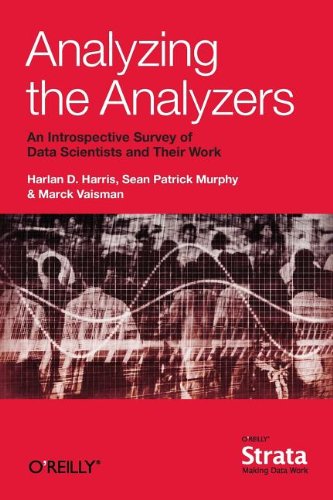

Most ebook files are in PDF format, so you can easily read them using various software such as Foxit Reader or directly on the Google Chrome browser.
Some ebook files are released by publishers in other formats such as .awz, .mobi, .epub, .fb2, etc. You may need to install specific software to read these formats on mobile/PC, such as Calibre.
Please read the tutorial at this link: https://ebookbell.com/faq
We offer FREE conversion to the popular formats you request; however, this may take some time. Therefore, right after payment, please email us, and we will try to provide the service as quickly as possible.
For some exceptional file formats or broken links (if any), please refrain from opening any disputes. Instead, email us first, and we will try to assist within a maximum of 6 hours.
EbookBell Team

0.0
0 reviewsThere has been intense excitement in recent years around activities labeled "data science," "big data," and "analytics." However, the lack of clarity around these terms and, particularly, around the skill sets and capabilities of their practitioners has led to inefficient communication between "data scientists" and the organizations requiring their services. This lack of clarity has frequently led to missed opportunities. To address this issue, we surveyed several hundred practitioners via the Web to explore the varieties of skills, experiences, and viewpoints in the emerging data science community.
We used dimensionality reduction techniques to divide potential data scientists into five categories based on their self-ranked skill sets (Statistics, Math/Operations Research, Business, Programming, and Machine Learning/Big Data), and four categories based on their self-identification (Data Researchers, Data Businesspeople, Data Engineers, and Data Creatives). Further examining the respondents based on their division into these categories provided additional insights into the types of professional activities, educational background, and even scale of data used by different types of Data Scientists.
In this report, we combine our results with insights and data from others to provide a better understanding of the diversity of practitioners, and to argue for the value of clearer communication around roles, teams, and careers.